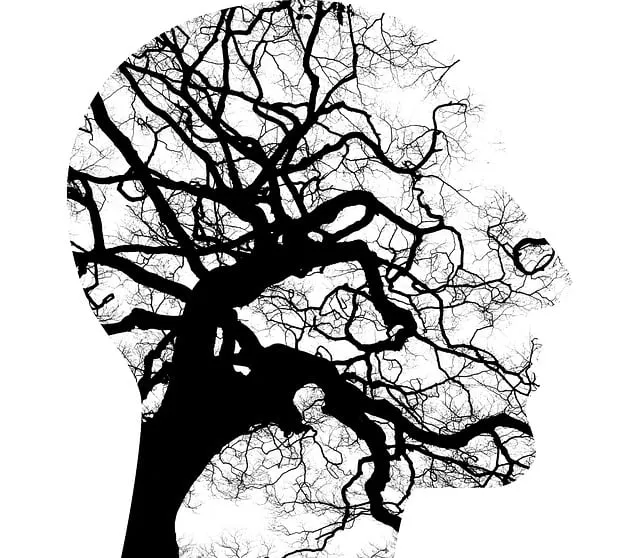The Kaiser Permanente mental health facility in Broomfield leads the way in innovative mental wellness coaching programs, addressing growing mental health challenges with a holistic approach. These programs integrate trauma support and crisis intervention to enhance resilience, self-care, and emotional regulation. By offering personalized curricula, evidence-based techniques, and continuous improvement through feedback, these coaching programs empower individuals to take control of their mental wellness and achieve lasting positive changes.
Mental wellness coaching programs have emerged as vital tools in addressing the growing need for accessible, personalized support. This article explores the development of such programs, drawing insights from a case study of the Kaiser Permanente Mental Health Facility in Broomfield. We’ll delve into key components, curriculum design, and success measurement strategies, highlighting how organizations like Kaiser Permanente are revolutionizing mental health care through coaching. Discover how these programs foster resilience and overall well-being.
- Understanding the Need for Mental Wellness Coaching Programs
- The Kaiser Permanente Mental Health Facility in Broomfield: A Case Study
- Key Components of an Effective Mental Wellness Coaching Program
- Designing and Implementing a Customized Coaching Curriculum
- Measuring Success and Continuous Improvement Strategies
Understanding the Need for Mental Wellness Coaching Programs

In today’s fast-paced world, mental wellness is an increasingly vital aspect of overall health, especially as institutions like Kaiser Permanente’s mental health facility in Broomfield recognize the growing demand for specialized support. The need for Mental Wellness Coaching Programs arises from the rising rates of stress, anxiety, and other mental health challenges among individuals of all ages. These programs aim to provide tailored guidance and strategies to enhance resilience, promote self-care, and foster inner strength development.
The integration of Trauma Support Services and Crisis Intervention Guidance within these coaching programs is essential. Many individuals struggle with past traumas or current crises that significantly impact their mental wellness. Effective coaching can help them navigate through these challenges, offering tools for coping mechanisms, emotional regulation, and building adaptive responses to difficult situations. By addressing these fundamental needs, Mental Wellness Coaching Programs have the potential to revolutionize the way people manage their mental health, ensuring a more balanced and fulfilling life.
The Kaiser Permanente Mental Health Facility in Broomfield: A Case Study

The Kaiser Permanente mental health facility in Broomfield serves as a shining example of a comprehensive and innovative approach to mental wellness coaching programs development. This healthcare provider has recognized the critical need for culturally competent services, particularly in an increasingly diverse community. As such, they’ve implemented extensive training programs focused on enhancing cultural competency among their staff, ensuring that every patient receives care tailored to their unique background and needs.
By prioritizing risk assessment for mental health professionals, Kaiser Permanente Broomfield has established robust safety protocols. These measures encompass not only crisis intervention but also continuous monitoring of patient progress, enabling early detection and management of mood disorders. This proactive approach, combined with evidence-based treatments, has significantly contributed to improved outcomes for patients navigating various mental health challenges.
Key Components of an Effective Mental Wellness Coaching Program

An effective mental wellness coaching program should incorporate several key components to ensure it meets the diverse needs of individuals seeking support. At the Kaiser Permanente mental health facility in Broomfield, for instance, programs are meticulously designed to foster a safe and non-judgmental environment where clients feel empowered to take charge of their mental well-being. This begins with establishing clear goals tailored to each individual’s unique challenges, whether it’s managing stress, improving self-care practices, or building resilience. Regular sessions focused on active listening, empathetic communication, and evidence-based techniques allow coaches to guide clients through personal growth journeys.
Furthermore, integrating confidence-boosting activities and teaching coping strategies is vital for long-term success. By incorporating these elements, the program equips participants with practical tools to navigate life’s challenges. Public awareness campaigns development within the coaching framework can also play a significant role in promoting mental wellness in the broader community. These initiatives encourage open dialogue about mental health, reducing stigma and fostering an environment where seeking support is normalized.
Designing and Implementing a Customized Coaching Curriculum

At the Kaiser Permanente mental health facility in Broomfield, designing a customized coaching curriculum involves understanding the unique needs and challenges of its diverse client base. This process begins with assessing individual goals, whether it’s burnout prevention for overworked professionals or positive thinking exercises for those struggling with low self-esteem. A tailored program, such as one focused on stress management and resilience building, can significantly impact long-term mental wellness.
Implementing this curriculum requires a structured yet flexible approach. Coaches should incorporate evidence-based techniques alongside creative strategies to engage clients. Regular feedback sessions enable continuous improvement, ensuring the program stays relevant and effective. By prioritizing personalized experiences, the Kaiser Permanente facility in Broomfield aims to empower individuals to take charge of their mental health and foster lasting self-esteem improvements.
Measuring Success and Continuous Improvement Strategies

Measuring success is a critical component of any mental wellness coaching program, especially at a facility like the Kaiser Permanente mental health facility in Broomfield. By implementing clear and quantifiable goals, coaches can track progress and adapt their strategies accordingly. This data-driven approach ensures that the programs remain effective and aligned with participants’ evolving needs. For instance, evaluating the impact of Stress Management Workshops Organization through pre-and post-assessments can reveal significant improvements in stress levels, anxiety management, and overall mental wellness.
Continuous improvement is fostered through regular feedback mechanisms and reflective practices. Mental Wellness Journaling Exercise Guidance can be a powerful tool for participants to articulate their experiences and set personal goals. Coaches can use these insights to refine their coaching techniques and develop tailored interventions. Additionally, seeking feedback from both clients and fellow professionals helps identify areas of excellence and opportunities for growth within the program, mirroring best practices in mental health care delivery at Kaiser Permanente Broomfield.
Mental wellness coaching programs are becoming increasingly vital, as evidenced by the success of initiatives like the Kaiser Permanente mental health facility in Broomfield. By incorporating key components such as personalized curricula and continuous improvement strategies, these programs can effectively support individuals’ mental health journeys. As we navigate the complex landscape of mental wellness, tailored coaching offers a promising path towards enhancing overall well-being. Leveraging best practices from case studies like Kaiser Permanente can guide organizations in developing robust coaching programs that make a tangible difference in people’s lives.






